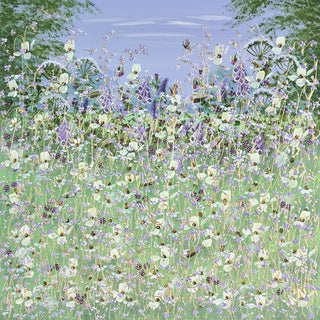The Joker: Chaos, Madness, and the Everlasting Legacy of DC’s Crown Prince of Crime
Few villains in pop culture history carry the same chilling magnetism as The Joker. Born from the pages of Batman #1in 1940, this clown-faced madman has evolved far beyond comic book origins to become a symbol of chaos, a mirror to society’s darkest corners, and a complex character that constantly challenges the boundaries of morality, identity, and sanity.

The Origin of a Madman
The Joker’s origin has always been shrouded in mystery. While "The Killing Joke" by Alan Moore famously proposed the idea of a failed comedian turned psychopath after “one bad day,” the character himself famously states, "If I’m going to have a past, I prefer it to be multiple choice." This ambiguity is central to his identity. The Joker isn’t just a man—he’s an idea. An idea that evil doesn’t always need a reason. Sometimes, it just is.
A Symbol of Chaos
Where Batman represents order, justice, and discipline, the Joker is the exact opposite: chaos, unpredictability, and destruction. Their dichotomy is what makes their dynamic so timeless. The Joker doesn’t want to kill Batman—he wants to corrupt him. He wants to prove that even the noblest person can fall, given the right push.
In many ways, the Joker forces us to ask uncomfortable questions: What makes a person snap? What is sanity? Is evil inherent, or born from circumstance? He doesn’t just terrorize Gotham—he terrorizes the human psyche.

The Many Faces of the Joker
Throughout the decades, the Joker has been portrayed in wildly different tones:
-
Cesar Romero brought a campy, colorful vibe in the 1960s Batman TV series.
-
Jack Nicholson delivered a mob-boss style Joker in Tim Burton’s 1989 film.
-
Heath Ledger redefined the character with a chilling, anarchist twist in The Dark Knight (2008), earning a posthumous Oscar.
-
Joaquin Phoenix’s portrayal in Joker (2019) painted a raw, disturbing portrait of mental illness and societal neglect.
Each version reflects the cultural anxieties of its era, showcasing the Joker’s versatility as a storytelling tool.
More Than a Villain
The Joker is more than just Batman’s archenemy. He’s become a cultural icon. His laugh, his smile, his philosophy—they all tap into something primal. He represents the fear that beneath our social structures lies something uncontrollable. Something mad.
Psychologists have written about him. Politicians have referenced him. Fans tattoo his quotes. From comics to cinema to real-life symbolism, the Joker has embedded himself deep in our collective imagination.

Final Thoughts
The Joker isn’t about superpowers or world domination. He’s about proving a point—that the world is just one step away from falling apart. And yet, he’s also a paradox: despicable but fascinating, vile but charismatic.
Maybe that’s why we keep coming back.
Because in a world that often feels just a little too close to falling into madness, the Joker is the jester that reminds us how thin the line between sanity and chaos really is.



